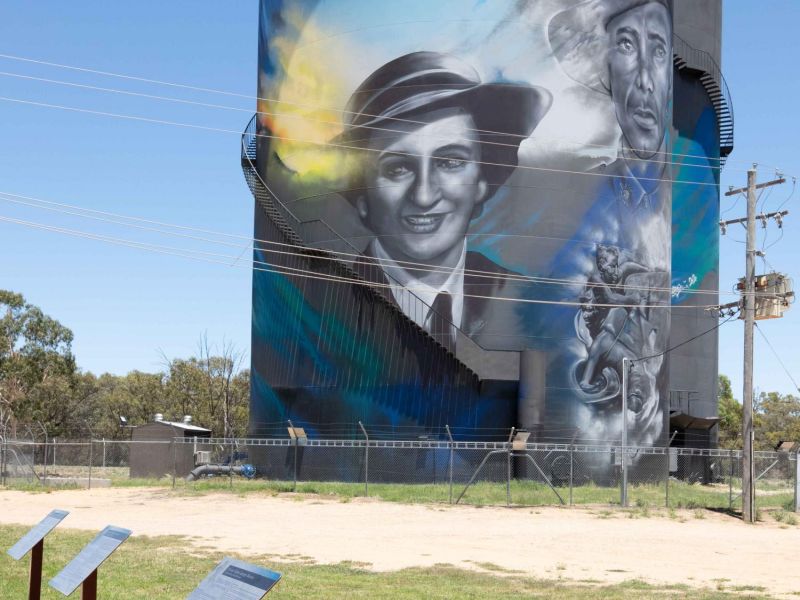LT Lorna WHYTE
Lorna Whyte was born in Hay on 19 April 1915, the youngest of eight children. She attended the Hay War Memorial High School before training as a nurse at the Cowra Hospital in NSW.
She joined the Australian Army Nursing Service (AANS) and was one of six nurses chosen in April 1941 to go the Rabaul on the island of New Britain with the 2/22nd Battalion AIF, which formed the bulk of Lark Force.
The six nurses and 80 patients were evacuated 22 January 1942 to the Catholic Mission near Kopoko, with other missionaries. The next day, the Japanese began their ground invasion and captured almost the entire of Lark Force. 160 Australian POWs, including medical orderlies wearing Red Cross brassards, were bayoneted, beheaded, shot or burned by Japanese troops at the Tol Plantation on New Britain. So horrific was this massacre that the Australian government suppressed details for 47 years.
Lorna stated they were fortunate to be under the protection of the Bishop at the Mission, as he had fought in the German Army in the Great War and had some influence with the Japanese. The Bishop sent the military patients back to the hospital in Rabaul, while the six AANS nurses and seven civilian nurses worked at the Convent, helping to grow food, washing and ironing.
On 6 June 1942, the six AANS nurses, twelve civilian women, and 70 Australian POW officers embarked for Yokohama Japan, where they were imprisoned in the boat club for the next 18 months and forced to knit silk bags and make envelopes. The nurses were later moved to the Yokohama Police Station for three weeks, and then onto a former TB clinic on a hill at Totsuka to work as slave labourers for the Japanese villagers.
From March 1945 the nurses could see the US B-29 aircraft fire-bombing Tokyo, but were too far away to even know about the bombing of Hiroshima and Nagasaki. They were not told that the war was over, but sensed it when things suddenly began to improve. They were also unaware that orders had been issued by the Japanese military to execute all POWs if the Allies landed on the Japanese mainland.
The group of nurses was found by US troops marching to Tokyo and were quickly flown to Manila for a month, fed, rested and detoxed, before returning to Australia on 2 September 1945.
In 1948, en route to America, she became sick in New Zealand. After spending six months in hospital she never left the country again. Once she was well she married Bill Johnston, a Kiwi, who served in the NZ 18th Battalion. They had three daughters and Lorna worked with physically handicapped children.
In 2011, she travelled with her daughter Patricia to Japan as part of a POW program and to receive an official apology from the Japanese Government.
Lorna (Whyte) Johnston died peacefully at Auckland Hospital surrounded by her family on 30 September 2013, aged 98.
 Western Front Association Central Victoria Branch
Western Front Association Central Victoria Branch